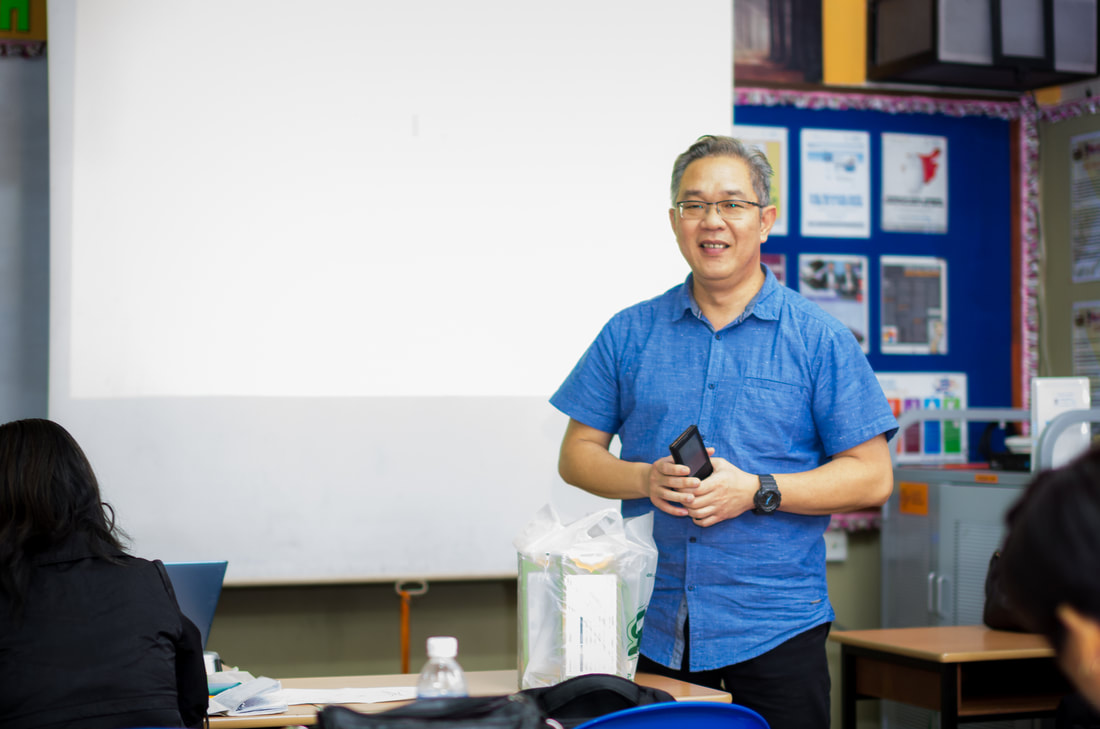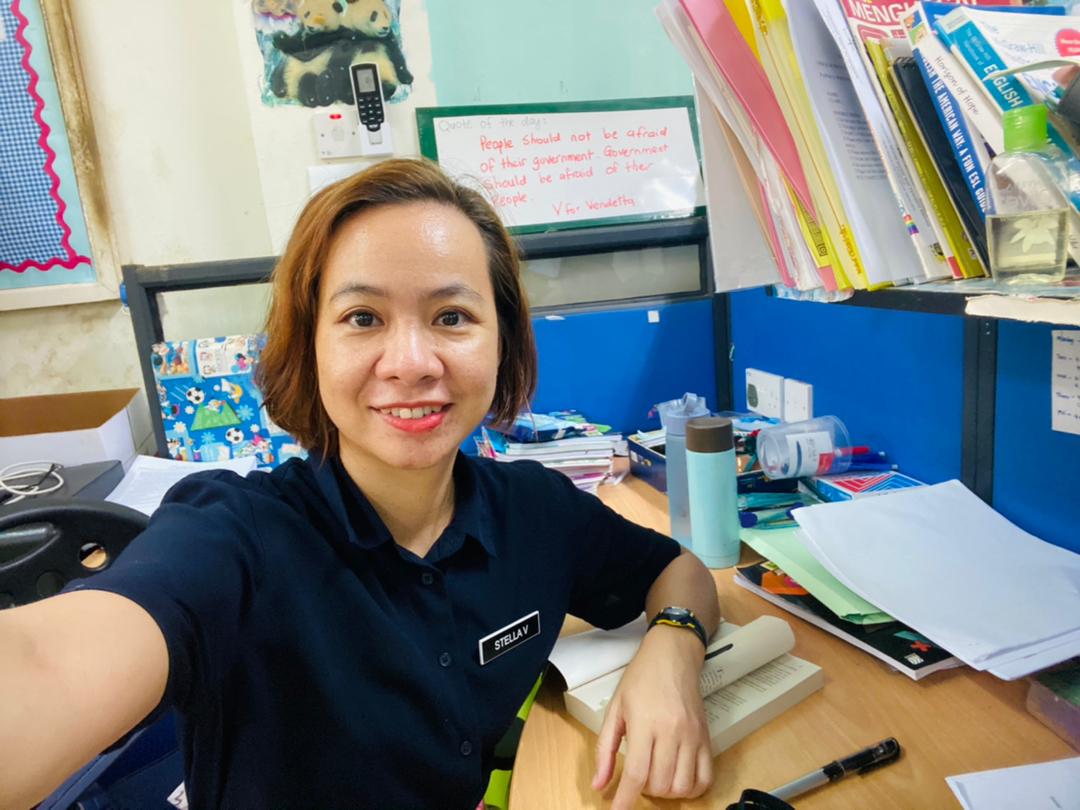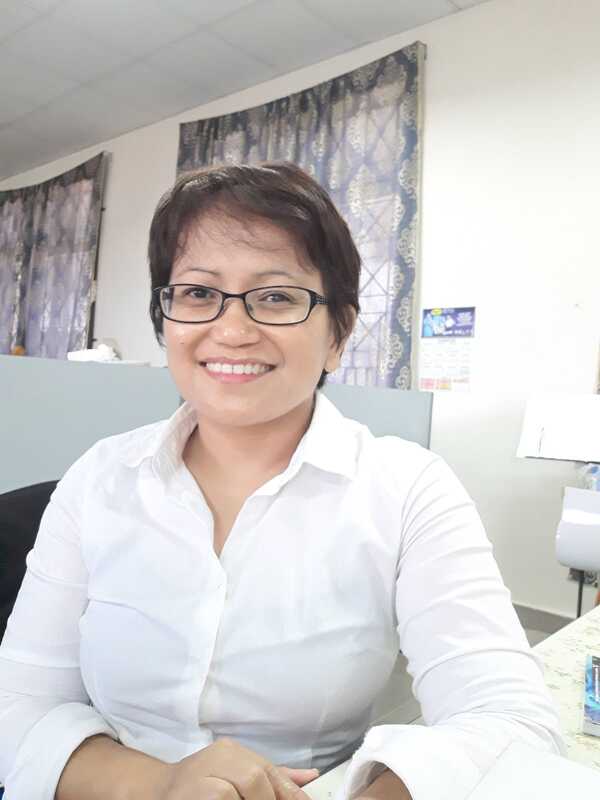|
by Dr Lee Kean Wah
It is an honour for me to announce the launch of the Going Digital ELT Blog. To provide a bit of background, the Going Digital ELT’s website (previously Going Digital Kota Kinabalu) is an online extension to a professional learning community for ESL teachers that I initiated together with Cynthia James and a team of educators from Universiti Malaysia Sabah (UMS) and Kota Kinabalu District Education Office (PPD KK) in 2016. This community gathers ESL practitioners who have a common passion in digital technology for language education in Sabah, Malaysia. (Go here to find out more).
0 Comments
by Ian James In recent years, the discourse surrounding student learning styles has gained considerable attention in the field of education. While it is crucial to acknowledge the diversity of learning styles among students, it is equally important to acknowledge the significance of a teacher's teaching style. This personal piece aims to shed light on the impact that a teacher's teaching style can have on the learning experience of students and to emphasize the importance of embracing one's authentic teaching style. As a seasoned educator with 18 years of experience, I recall my early days in the profession. At the time, I was advised to adopt a strict and stern demeanour in the classroom. However, I struggled to do so as I have always been inclined towards creating a fun and friendly learning environment for my students. Despite my best efforts, I eventually succumbed to external expectations and adopted a strict teaching style. Unfortunately, this resulted in students not enjoying my lessons and some even exhibiting rude behaviour towards me. I found myself pondering the reasons for my ineffective teaching approach. It was intriguing to observe that the teachers who had suggested adopting a stern and strict demeanour were able to exhibit those traits while still maintaining a level of respect from their students. This begged the question of why such an approach had proven successful for them, yet not for myself. I was advised to adopt a strict and stern demeanour in the classroom. However, I struggled to do so as I have always been inclined towards creating a fun and friendly learning environment for my students. by Abdul Aziz bin Arsyad Overview
On the 8th of July, 2021, our GD-ELT editorial member Abdul Aziz bin Arsyad has published an article entitled Of Covid-19, Persevering Teachers, and the Perpetual Loop of Virtual Connectedness. In the article, he recounted his experience of conducting online teaching during the pandemic, and offered some in-depth reflections on the issues surrounding teachers, students, schools, and the state of education in Malaysia during those very trying times. More than six months after the publication of that very well-received article, the GD-ELT editorial team decided to revisit Aziz's experience of putting his thoughts out there. In this article, Aziz shares how the journey of publishing his story publicly has contributed towards the development of his personal practical knowledge as an educator. by Ian James Doubts - Awe - Curiosity
When the news came that there was going to be a Sabah State Level English Language Carnival, I had many doubts. What with all the challenges everyone had to face during the pandemic, I didn’t think it was going to be much of a success. And when it was later announced to be a fully-online event, my doubts increased twofold. I was so certain it would only appeal to students of well-to-do families. At the same time, I silently wept over the fate of so many rural students who could only dream of taking part in the event; if only they had the luxury of high-speed Internet connectivity as their privileged urban counterparts. Which is why when I discovered that 22 districts sent in their registrations, I was filled with awe. I have been involved with so many English Carnivals in the previous years. There was one time when I got appointed as one of the judges for the Poetry Recitation competition and was overwhelmed because something like 14 districts participated in it. So if 14 districts overwhelmed me, what more 22! As much as I was in awe, I was also curious. How was it possible that this year’s carnival (an online one to boot) became one of the most participated English Carnivals in the history of JPN Sabah? by Abdul Aziz bin Arsyad Introduction Precisely at 12.01 A.M. on the 4th of April 2021, I decided to pull the plug on my two main social media platforms – Facebook and Instagram after years of online engagement. I woke up the next day with WhatsApp messages from colleagues, family and friends who were asking if I was doing fine and if everything was okay. I reassured them that I was in a sound state of mind and that I just needed a break from the perpetual loop of virtual connectedness. It was not an overnight decision. It was a gradual feeling of exhaustion from the frequent need to be seen online in order to stay active and relevant in today’s world. However, this weariness turned to mental fatigue when the pandemic hit in the first quarter of 2020 and how ever since, teachers and students alike have been ruthlessly inundated with suggestions of innumerable virtual platforms and applications to facilitate online teaching and learning. While I understand the need to fully exploit virtual platforms and cutting-edge applications to ascertain that teaching and learning will continue to take place albeit the persistent pandemic around us, I cannot help but notice that very few of us actually care enough to tell each other to stop and reflect. After more than a year since the pandemic first radically forced the transformation of teaching and learning as we knew it, have we reflected on the reality on the grounds, the well-being of teachers and students as well as what it means moving forward for teachers and their professional development? While I understand the need to fully exploit virtual platforms and cutting-edge applications to ascertain that teaching and learning will continue to take place albeit the persistent pandemic around us, I cannot help but notice that very few of us actually care enough to tell each other to stop and reflect. by Stella Veronica Bulugu Summary
This article relates my personal experience as a teacher, conducting remote teaching during the pandemic. Teaching students who mainly come from lower socioeconomic background in the district of Semporna in Sabah, Malaysia has put me in a deep reflective mode. This article is an honest sharing of the mental burdens and emotional turmoils I had undergone during those very challenging times. This article ends with some recommendations on how education leaders and district education offices can play a more active role in supporting teachers' mental and emotional well-beings in this unprecedented time.
by Cynthia C. James
Summary
I have plenty of experiences with low-resource classrooms - as a student, a teacher, and someone who works with and alongside teachers. In this post, I would like to share how all these experiences have shaped my thinking about technology integration practices in the classroom, and my belief about what matters. To borrow Clandinin's (2013) term, this is my 'narrative beginning.' I am sharing my reflections on how it all started, and how I came to be part of the Going Digital community. |
Categories
All
|







